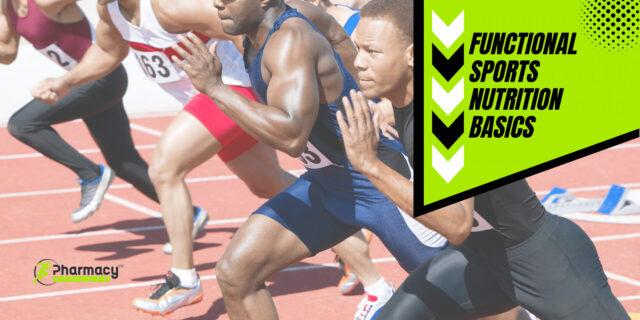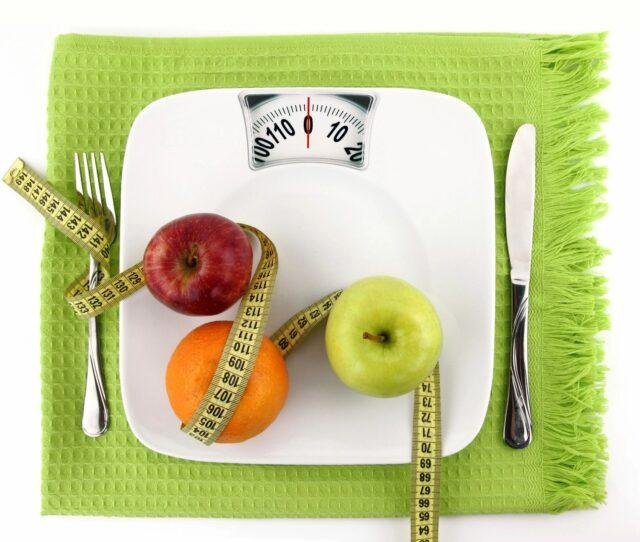Functional Nutrition for Sports Athletes

Functional Sports Nutrition (FSN) is based on Functional Medicine designed for athletes. The concept was born by combining the science of sports nutrition and functional medicine which recognizes the distinct need of each athlete.
Have you ever wondered why you still feel lethargic or unaccomplished after trying diet plan after diet plan and still no results?
It could be that your dietary program is not meeting the nutrition your body needs to bring your health and performance to the next level.
A robust dietary program is essential for peak performance and to achieve optimal wellness. Unfortunately, there is no cookie cutter diet plan and diet program must be tailored toward the physiologic demands of our sport or activity.
Instead of doing the general approach, FSN gets to the root of “why” an athlete is not performing or “how” an athlete works to attain optimal performance.
Functional Sports Nutrition (FSN) is all about feeding your body with the “right” fuel to address nutrient deficiencies and restore health leading to faster and better recovery.
Functional Sports Nutrition Basics

Energy Expenditure
The energy requirement varies throughout life. Appropriate food and fluid intake support optimal bodily function. Professional athletes’ energy needs differ from 2000 to 8000 kilocalories per day depending on the individual’s dietary supplements, medications, exposure to heat and cold, and the particular sport’s position played.
The energy available helps enhance the health and function of the athlete. But some optimize their performance and health by reducing their body weight gradually.
The ideal weight loss progress should start at 0.5 to 1 pound/week achieved when calorie intake is also reduced by 250 to 500 calorie intake per day.
Slow weight loss in functional sports is safer to avoid compromising cardiac function, and endurance, and impairing the body’s temperature regulation.
Athletes’ Anatomy
The ideal BMI or Bodily Mass Index for male athletes’ is 21.9–22.4 and 21.3–22.1 kg/m2 for female athletes. But this also varies by the type of sport and position played. Besides, an athlete’s performance cannot be solely based on body composition.
For male athletes, the ideal body fat is 6 to 13% and 14 to 25% for women in general but this can widely differ per individual and sport. Body fat less than 4% in men and 10% in women can be a manifestation of an eating disorder while body fat of more than 26% for men and 29% in women could risk chronic diseases and obesity.
Energy Systems
An energy system refers to the process of how the body converts protein, carbs, and fat from food intake into energy cells to power up bodily functions and activities. Generally, there are three energy systems available for athletes: the phosphocreatine system, anaerobic system, and aerobic system.
The phosphocreatine system relies on a converted compound called adenosine triphosphate and phosphocreatine to produce an astonishing amount of energy instantaneously fitting for quick but intense sports like weightlifting or sprinting.
The phosphocreatine system can only power up an athlete for about 20 seconds, and once phosphocreatine stores gets reduced, an athlete can only rely on the anaerobic system as a fuel source to finish the race.
But as heart rate increases, more oxygen becomes available in the bloodstream and muscles signaling the body to switch to an aerobic system. This energy system is responsible for the production of more ATP for the muscles.
The aerobic system may take a while to start producing a sufficient amount of ATP, but once it warms up, it can efficiently provide ATP for a long time to power up endurance sports.
Macronutrients (Carbohydrates, Fat, and Protein) Distribution
In general, the recommended daily allowance (RDA) for protein is 0.8 g/kg/ day. But protein requirement increases from 1.2 to 2.0 g/kg/day for athletes that do more exercise, but is still dependent on the focus for strength or endurance. For strength management, recommended protein intake is 1.2–1.7 g/kg/day while less at 1.2–1.4 g/kg/day is suggested for endurance.
Adding more protein to your diet through supplements does not support muscle synthesis or promote muscle gain. Anything in excess such as in the case of protein ends up being stored as fat or is a risk of dehydration.
On the other hand, provisioning of sufficient carbohydrates along with changes in training helps athletes’ performance in functional sports. 50% to 65% of total daily calorie consumption is recommended to comprise carbohydrate body needs which also increases as the duration of training and intensity increase.
However, less carbohydrate is needed at 5–7 g/kg/day during strength training and 7–10 g/kg/day for endurance.
Meanwhile, it is recommended to have 500g to 800g of carbohydrate to maintain optimal glycogen stores for endurance and energy reserve for aerobic and anaerobic activities.
Glycogen has also stimulating effects on health, muscle strength, and maintenance.
Nutritional Recommendations during Exercise or Competition

Nutritional strategy is designed based on the individual requirements of the athlete, the psychological, and physiologic benefits of specific nutrients. Diet for pre-competition consists of high complex carbohydrates, low protein, low fat, and fiber for less gastric distress.
For endurance competition, athletes are only provisioned to have 15g to 30g of carbohydrates every 30 minutes throughout the event. Ideally, high glycemic food in gradual amounts including various sports drinks.
Consuming a small amount of carbohydrates during physical activity or competition is said to enhance workout strategies and performance due to the physiologic process of “mouth sensing”.
Nutritional plans also promote the topmost athletic games. Nutritional strategies should start within the 30 minutes time frame after the exercise while insulin, glycogen synthetase, and glucose levels are still high to refill muscle reserves. When you want to replete muscle reserves, it is best done post-exercise with the combination of protein at about y 0.3 g/kg body weight post-regimen then every 3 to 5 hours throughout the day (multiple meals) and carbohydrates.
Sports Nutrition Vitamins, Minerals, and Hydration

Increased physical activities in functional sports require athletes to add vitamins and minerals apart from their designed nutritional plans to lower the risk of micronutrient deficiencies. Low iron can have negative impacts like reduced performance and poor recovery.
Vitamin D and calcium are important for optimizing performance and lowering the risks of injury, especially for female athletes. Low levels of calcium, caffeine intake, low estrogen level, and other factors lead to a high probability of osteoporosis.
On top of supplements, weight-bearing activities promote better osteoporosis management and prevention.
Meanwhile, keeping sufficient vitamin D levels reduce inflammation, provide better rehabilitation, lower risks of stress fractures, and instigate type 2 muscle fiber contractility.
Hydration
For each pound dropped because of exercise, athletes must drink at least 2 to 2.5 cups of fluid or 16 to 24 ounces, 14 to 22 ounces of fluid within 2 hours pre-exercise, and 8 ounces within 15 to 20 minutes post-exercise.
While water is the primary source of hydration, sports nutrition recommends consuming sports drinks containing 3% to 8% carbohydrate solution, particularly for routines lasting more than 1 hour or during an extremely hot or humid condition.
I am dedicated to help you reach your fitness and nutrition goals. I offer one-on-one consultations, group coaching, and meal plans. If you have any questions, please feel free to text me at 1-813-739-9101.
Dr. Brandon Welch, PharmD.


